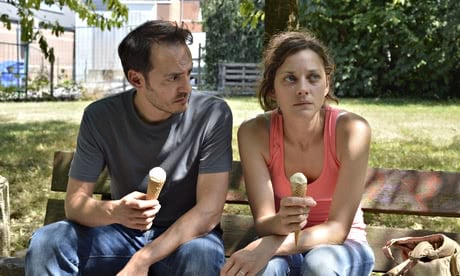The films by Belgian brothers Jean-Pierre and Luc Dardenne (Rosetta, The Child, The Kid With A Bike) superficially fit into a very conventional mode of cinematic realism – location shooting, natural lighting, handheld camera, no music score, et cetera – and yet, the ends of their means can rarely be reduced to something as humdrum as an unvarnished portrait of a specific time and place.
Their latest film, Two Days, One Night, stars Marion Cotillard as Sandra, a mother who discovers her co-workers have opted for a bonus even as it means her dismissal; the title refers to the weekend she spends trying to convince them, one by one, to reject the bonus so she can get her job back.
The stakes are initially very clear-cut, and the structure inherently repetitive, as Sandra visits each of her 16 colleagues individually to try to make them reconsider their decision. What’s masterful about the film is how these stakes shift over its course: Sandra’s economic desperation is initially tied to her sense of dignity and self-worth, but with each visit this relationship becomes increasingly tenuous, and the yes/no outcome feels less important than what these interactions contribute to the film’s cross-section portrait of the human condition. It’s also the second film this year – after James Gray’s unfairly neglected The Immigrant – in which a large chunk of its success rests in the emotional transparency and mystery that Cotillard so expertly conveys with even the simplest gestures and body language.
Two Days, One Night certainly has topical resonance in its depiction of working class unemployment woes, but as ever, the Dardennes are hardly opportunists. What they accomplish here is the very tough task of making human decency and altruism – rendered in a rigorously plainspoken visual style – akin to a major great dramatic spectacle, confirming their status as filmmaking alchemists of the highest order.
4.5/5 stars
Two Days, One Night opens in cinemas Thursday November 6.

































